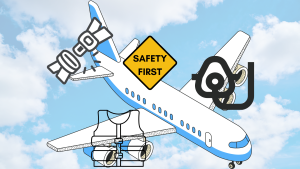While problems continue to arise in the aftermath of the Deepwater Horizon oil spill, various companies are wasting time pointing fingers. Recently, BP, the global oil and gas company whom the U.S. government deems responsible, has published a report on the findings of its investigation. While BP does admit its responsibility for the tragedy, it also blames Transocean, who lent BP the rig, and its cement contractor, Halliburton. However, both Transocean and Halliburton criticize the report and deny any wrongdoing.
EcoRollins President Theresa Chu ‘11 thinks more emphasis should be put on the clean up of the spill rather than finding whom to blame.
“Right now, energy and focus should be spent on cleaning up the oil spill rather than on pointing fingers … They can decide where to place the blame after the oil is gone from our oceans and beaches,” she says, referring to the fact that approximately 4.9 million barrels of oil leaked into the Gulf after the blast.
As residents of Florida, we are all greatly impacted by this spill and how long it will take for cleanup and recovery. According to ABC News, tourism in Florida is a $60 billion industry, which we cannot afford to lose, since for the past three years Florida was among the top five states for home foreclosures.
If the economy continues to worsen in Florida there will probably be fewer job opportunities for recent Rollins graduates.
This situation will affect our work force and leisure activities, including visits to the alwayspopular Florida beaches. Beaches and towns along Florida’s Gulf Coast are seeing a decrease in business due to people’s fear of the oil reaching the shore. Ronda Holley, general manager of Pinnacle Port in Panama City Beach, observes that this past Memorial Day weekend the properties were only 65 percent occupied, compared to full occupancy last year.
To promote business, Holley is now offering customers a “white sands guarantee,” meaning that if oil shows up on the shores they will receive a full refund and free pass for another time.
She has not had to grant any of those yet, though, as the beaches have been clean. Another popular Gulf Coast beach, Clearwater Beach, has not been affected by any oil near its shoreline either.
Meanwhile, business is moving away from the Gulf Coast to cities like Orlando and Atlantic coastal areas like St. Augustine Beach. The possibility still lingers that the oil could hit the Gulf Stream and move around the tip of Florida, however, which would be devastating to the environment and economy alike.
Unfortunately, what has happened in the Gulf cannot be undone, but we can learn from this awful moment in our history.
“Rollins students should be concerned, because disasters like oil spills affect our future and the decisions we make in how we choose to live our lives,” says Chu.
“Will we be the generation that learns from past mistakes and strives to do better? Or will we be the generation that spends our time and money cleaning up the mistakes of previous generations only to make the same mistakes again? Even though we as a campus could not have stopped the oil spill, we can make changes in our lives that allows us to live more sustainably in order to decrease our dependence on oil.”







Be First to Comment